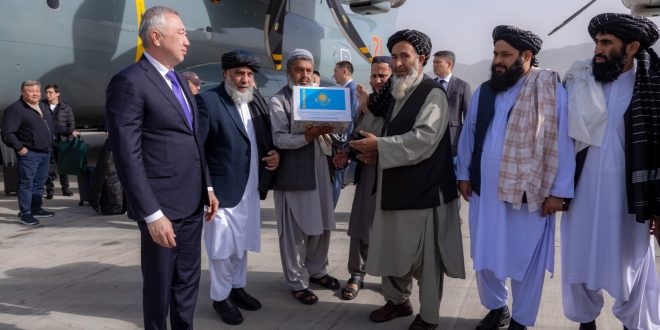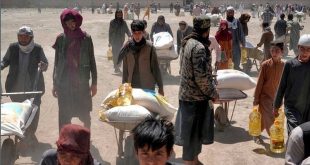KABUL — In a major step toward strengthening economic ties with Taliban-ruled Afghanistan, Kazakhstan has announced plans to open a trading house in Kabul, marking a significant shift in regional diplomacy. The proposal was made by Kazakh Deputy Prime Minister and Minister of National Economy Serik Zhumangarin during his official visit to the Afghan capital on April 22, where he met with Deputy Prime Minister Abdul Ghani Baradar.
Baradar welcomed the initiative and in turn proposed opening an Afghan trading house in Kazakhstan, signaling mutual interest in institutionalizing commercial cooperation. This move places Kazakhstan firmly among a growing list of Central Asian nations — including Uzbekistan, Turkmenistan, and Kyrgyzstan — that are taking pragmatic steps to engage with the Taliban-led government on trade, transit, and infrastructure development.
The Kazakh delegation also delivered a second batch of humanitarian aid during the visit, comprising essential medicines. Since the Taliban’s return to power in 2021, Kazakhstan has sent tens of thousands of tons of humanitarian supplies including flour, food, and warm clothing, cementing its role as one of Afghanistan’s top ten trading partners.
In 2024 alone, Kazakhstan’s sugar exports to Afghanistan skyrocketed to 143,000 tons, compared to just 19,100 tons the previous year. Kazakh officials also expressed interest in importing early-season Afghan vegetables and exploring joint ventures in mining and infrastructure. A Kazakh engineering team recently collected ore samples from Nuristan Province containing beryllium, lead, and zinc for analysis back home.
Zhumangarin’s visit also included a meeting with Afghan Minister of Communications and Information Technology Najibullah Haqqani, where the two sides discussed cooperation in telecommunications and rail connectivity, including laying optical fiber and construction along the Torghundi–Herat railway.
Observers say this latest development reflects a broader regional trend of pragmatic engagement. “Kazakhstan is clearly following in the footsteps of Uzbekistan and other Central Asian neighbors who’ve moved past political hesitations and are prioritizing connectivity, trade, and stability,” said a regional analyst based in Tashkent.
With a roadmap to boost bilateral trade to $3 billion already in place, the opening of reciprocal trading houses may signal the beginning of a new era in Afghan-Central Asian economic integration — one driven by necessity, geography, and a shared vision for regional growth.
 Afghanistan Times
Afghanistan Times




